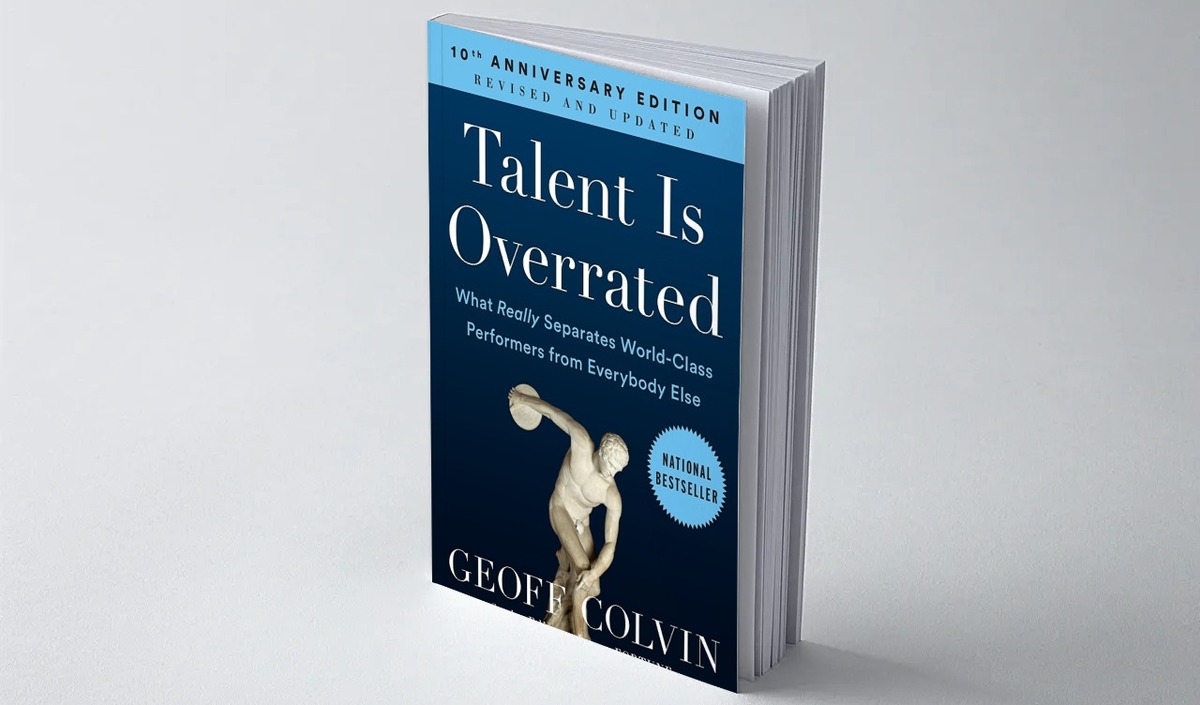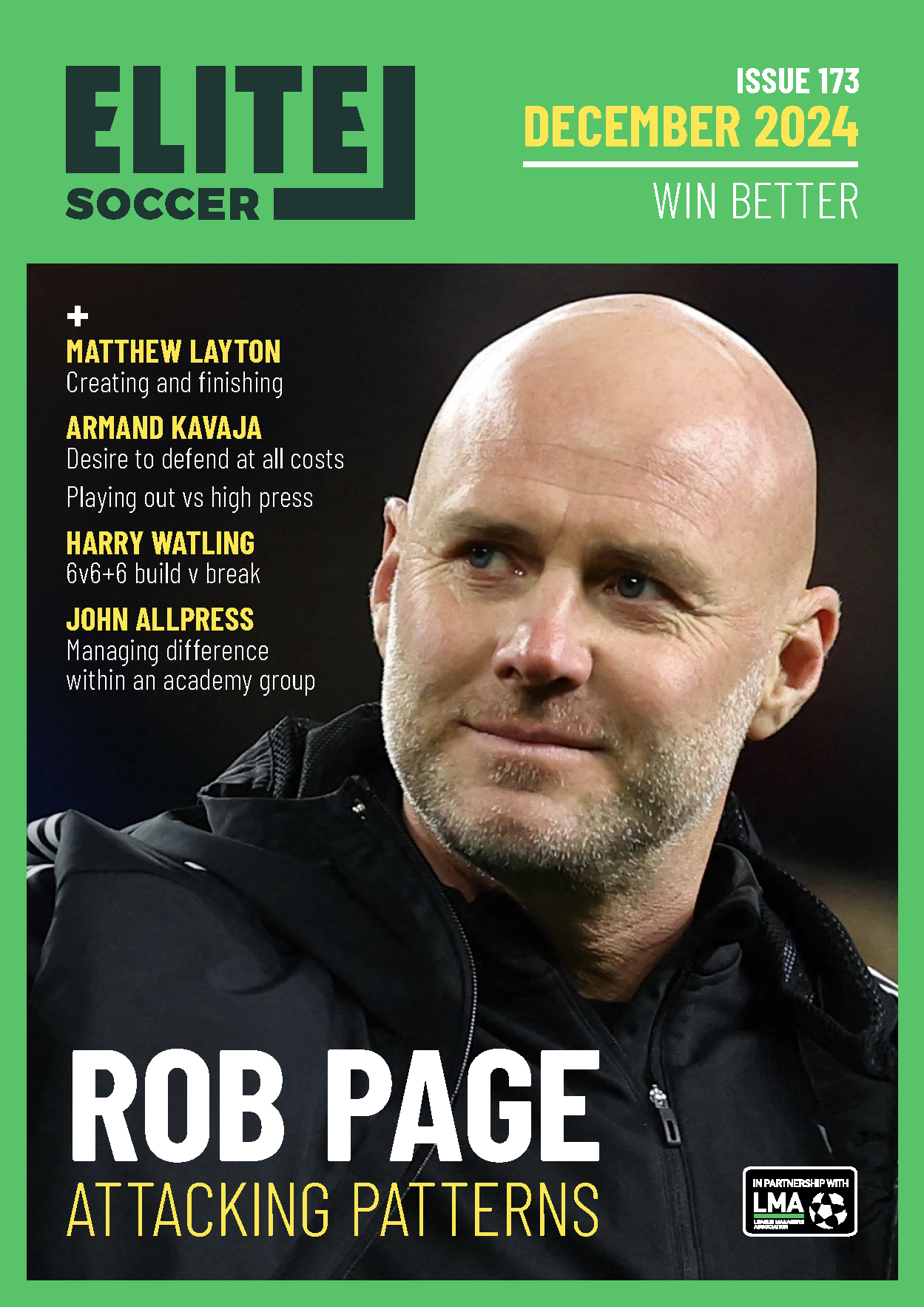You are viewing 1 of your 1 free articles
Talent is overrated
Becoming world class in any field of human endeavour is neither the consequence of hard work or God-given endowment”, Geoff Colvin states decisively at the opening of his investigation into what explains top performance. These are the two most popular explanations of how greatness is achieved, yet they are not the full explanations. Lots of people work hard all their lives and never become great at what they do, and plenty of people achieve greatness without having an innate talent. “Great performance is in our hands far more than many of us ever suspected,” he suggests. So what is the secret?
Modern research into high performance in many fields has shown that something called “deliberate practice” plays an important role, and in essence Colvin’s book is an exploration of what this means, and the implications. Precisely what role deliberate practice plays remains a matter of some debate, with questions outstanding about exactly what needs to be practised and how, and, still more about where the passion, motivation and dedication required to carry out such practice comes from.
So what is deliberate practice and what use might it be to a soccer coach? Colvin is good at explaining what it isn’t and many of us will recognise his personal example of “practising” golf at the driving range. He turns up, grabs a couple of buckets of balls and does what he always does - hits a few short shorts, a few long shots, and quite a few bad shots. It feels like practice, but on reflection it’s not doing much, if anything, for his game.
“Occasionally I realise that I should stop to think about why the shot was bad. There seem to be about 5,000 things you can do wrong when hitting a golf ball, so I pick one of them and work on it a bit, convincing myself that I can sense improvement, until I hit another bad one, at which point I figure I should probably also work on another one of the 5,000 things.” So this certainly is not deliberate practice.
Anders Ericsson, the researcher who coined the phrase, described it as something that isn’t work and isn’t play but something unique. There are several elements:
- It is activity specifically designed to improve performance, often with a teacher’s help.
- It can be repeated a lot.
- Feedback on results is continuously available.
- It’s highly demanding mentally – whether an intellectual or physical challenge.
- It isn’t much fun.
So deliberate practice isn’t what most of us do when we are “practising”, or coaching our team, and it is most certainly a recipe for not having fun. According to Colvin: “Doing things we know how to do well is enjoyable, and that’s exactly the opposite of what deliberate practice demands.”
What would a soccer coaching regime based on deliberate practice look like? Well a positive start is that the team has a coach in the first place; a coach with a knowledge of how performance is developed and improved is even better. By observation a coach can see things that the players cannot. However, here’s betting that in a majority of soccer clubs on a Sunday morning the sessions do not fit the deliberate practice template, that they are not designed specifically for improvement, and that they are more likely chosen on a whim with little planning.
Let’s start with the first element. The key word here is ‘designed’. Someone has to choose the best practice activity and to make it stretch an individual beyond his or her current abilities. This is done by identifying certain sharply defined elements of performance that need to be improved, and then working intently on them.
We need not dwell on from the second element that ‘it can be repeated a lot’ as coaching drills are inherently repeatable. The third, ‘feedback on results is continuously available’, is also true in a coached environment, and this puts a big responsibility on the coach to provide individual and accurate feedback. One has to be on the case on every individual – commenting, cajoling, encouraging – and given that this is in essence fault correction, they are probably not going to enjoy the experience.
Fourthly, the fact that it is ‘highly demanding mentally’ presents issues for groups of 20 or more 14 year-old soccer players in terms of concentration span, ability to engage, motivation, willingness to learn and not muck around, and so on.
And finally ‘it isn’t much fun’. This goes to the root of the purpose of sport and coaching an amateur team. What are we doing it for? To win matches at all costs? To have fun? To develop world class performers? There is unlikely to be a consensus among the players, their parents or even the coaches. Why would you invite your players to come along and not have fun every week? They probably wouldn’t come. The reality is probably that the painful, deliberate practice should form just a part of the coaching regime, other elements of which are game play and which are very much fun and enjoyable.
All of this points to one very hard fact. Even if we as coaches wanted nothing else than to produce great performances from our players there are massive hurdles in the execution required just to set off on the road.
As Colvin points out, instead of doing what we are good at, we need to insistently seek out what we are not good at. We have to identify the painful, difficult activities that will make our players better and do those things over and over. Practice is all about pushing our players just beyond what they can currently do.
There’s more in this book about applying these principles in our lives and in organisations, but if it all seems a little daunting, consider this - as Colvin points out, if the activities that lead to greatness were easy and fun, then everyone would do them and they would not distinguish the best from the rest.
“The reality that deliberate practice is hard can even be seen as good news. It means that most people won’t do it. So your willingness to do it will distinguish you all the more.”
Precisely.
Talent is Overrated - What Really Separates World-Class Performers from Everybody Else, Geoff Colvin. Nicholas Brealey Publishing 228pp.
Editor's Picks
Using the goalkeeper in build-up play
Pressing principles
Intensive boxes drill with goals
Penetrating the final third
Creating and finishing
My philosophy
Pressing initiation
Compact team movement
Defensive organisation
Coaches' Testimonials

Alan Pardew

Arsène Wenger

Brendan Rodgers

Carlos Carvalhal

José Mourinho

Jürgen Klopp

Pep Guardiola

Roy Hodgson

Sir Alex Ferguson

Steven Gerrard
Coaches' Testimonials

Gerald Kearney, Downtown Las Vegas Soccer Club

Paul Butler, Florida, USA

Rick Shields, Springboro, USA

Tony Green, Pierrefonds Titans, Quebec, Canada
Join the world's leading coaches and managers and discover for yourself one of the best kept secrets in coaching. No other training tool on the planet is written or read by the calibre of names you’ll find in Elite Soccer.
In a recent survey 92% of subscribers said Elite Soccer makes them more confident, 89% said it makes them a more effective coach and 91% said it makes them more inspired.
Get Monthly Inspiration
All the latest techniques and approaches
Since 2010 Elite Soccer has given subscribers exclusive insight into the training ground practices of the world’s best coaches. Published in partnership with the League Managers Association we have unparalleled access to the leading lights in the English leagues, as well as a host of international managers.
Elite Soccer exclusively features sessions written by the coaches themselves. There are no observed sessions and no sessions “in the style of”, just first-hand advice delivered direct to you from the coach.





